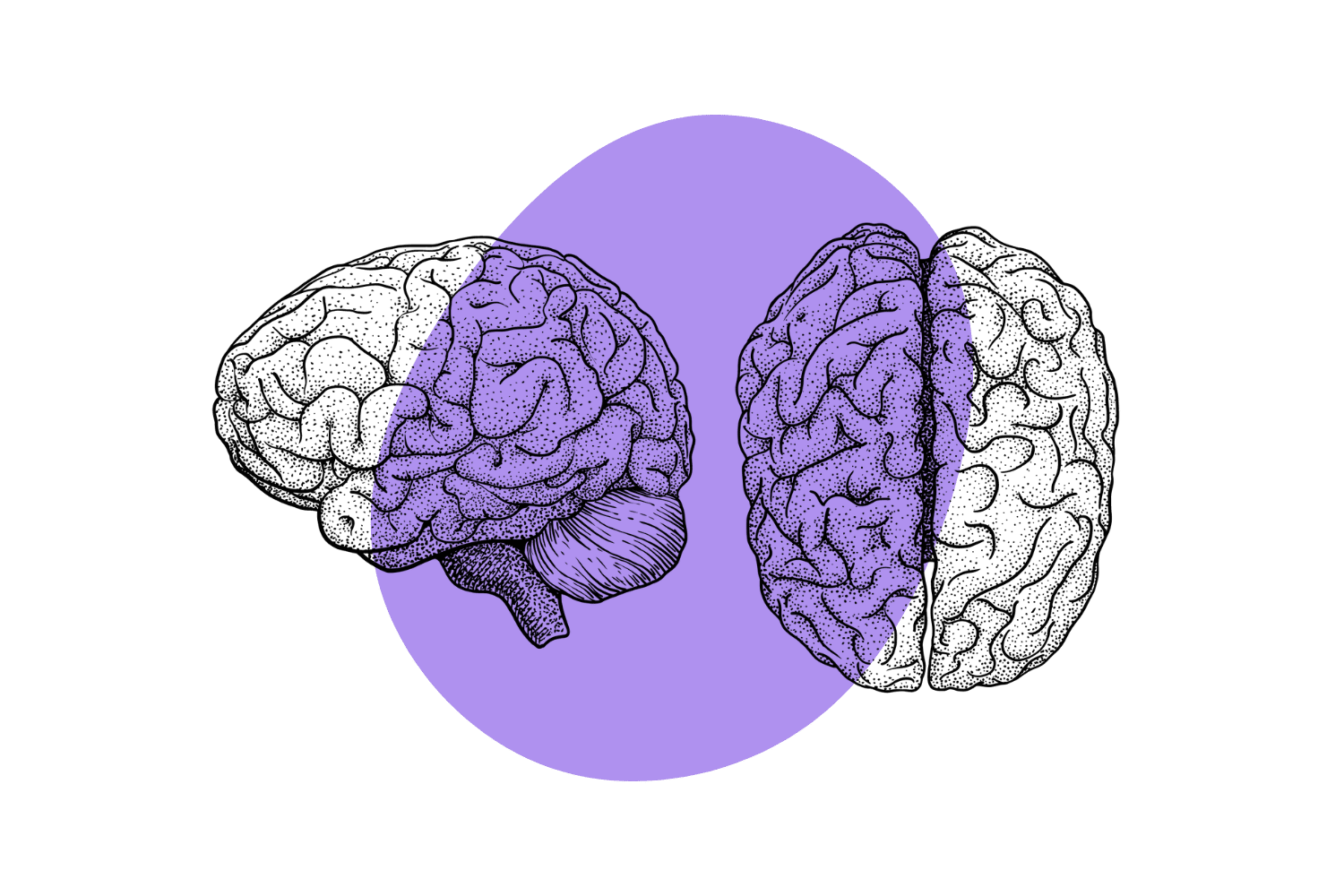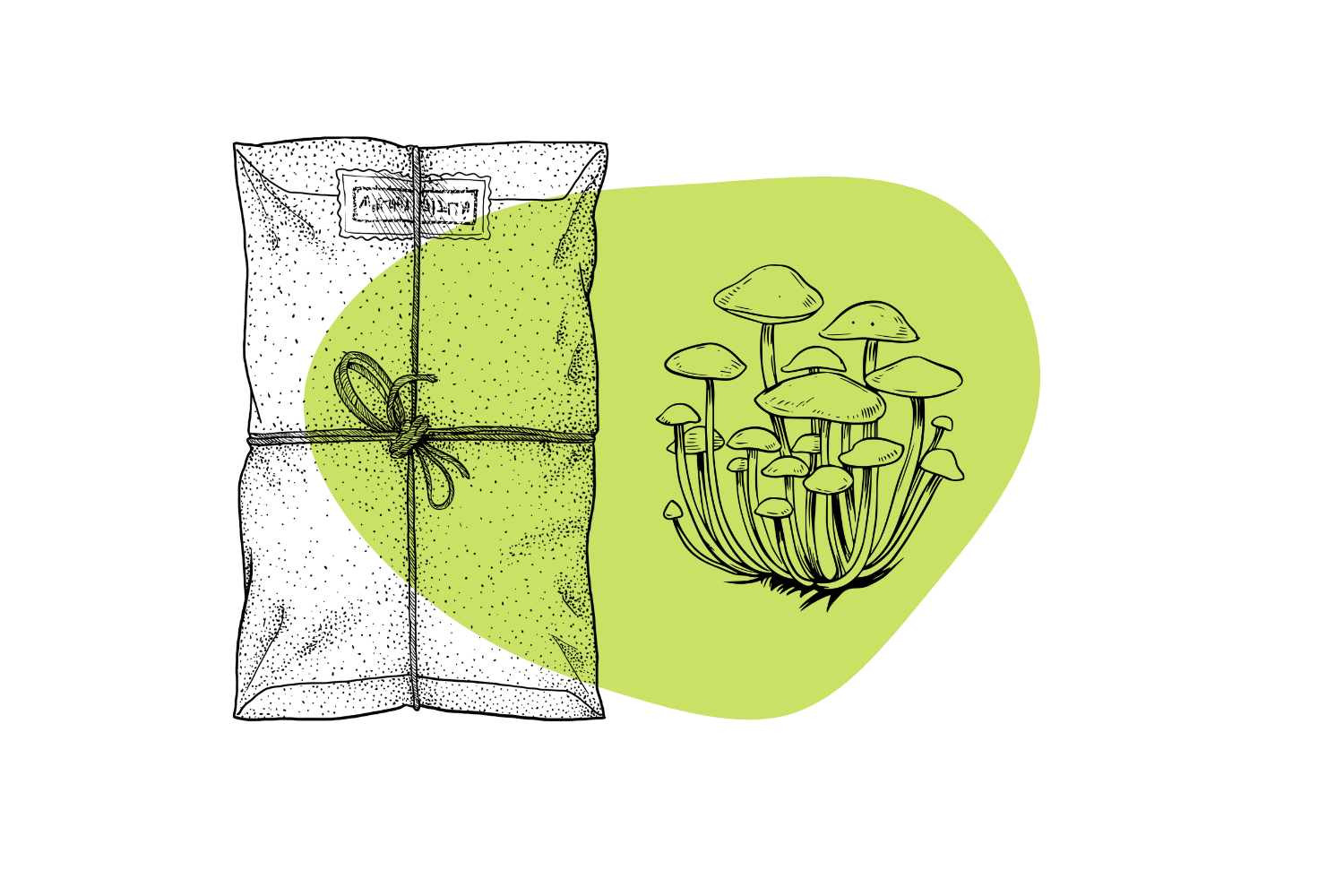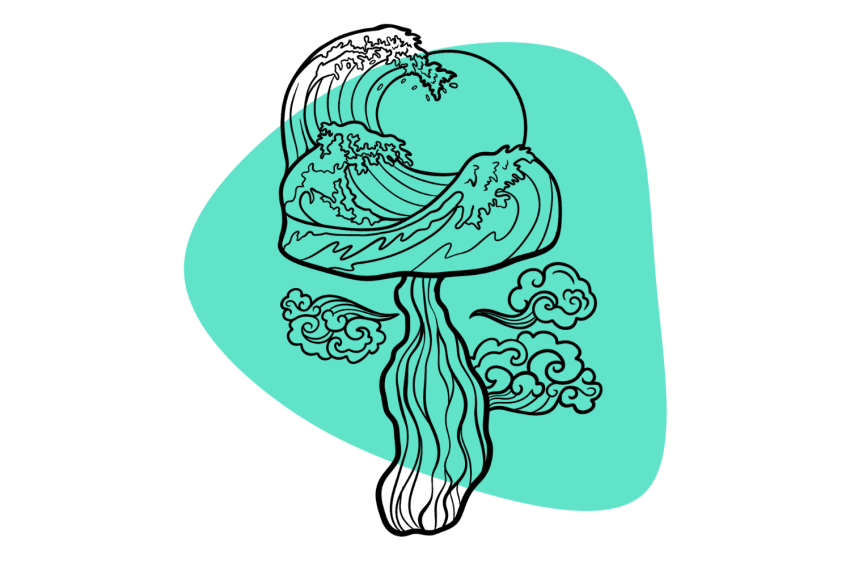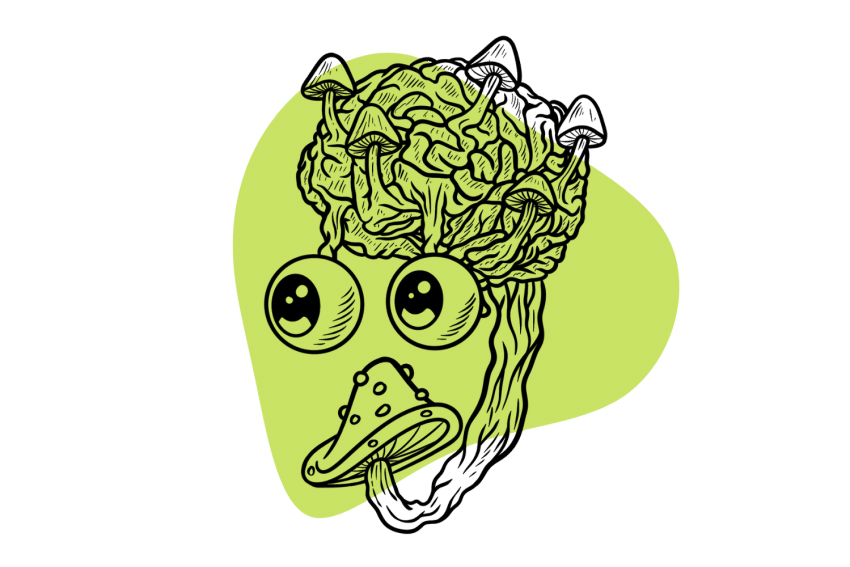Are Mushrooms Keto-Friendly? (Benefits, Recipes, & Current Research)
Nothing is worse than unintentionally throwing your whole diet off because you accidentally ate something you weren’t supposed to — fear not, mushrooms are keto-friendly… but tripping on them is a bit more complex.
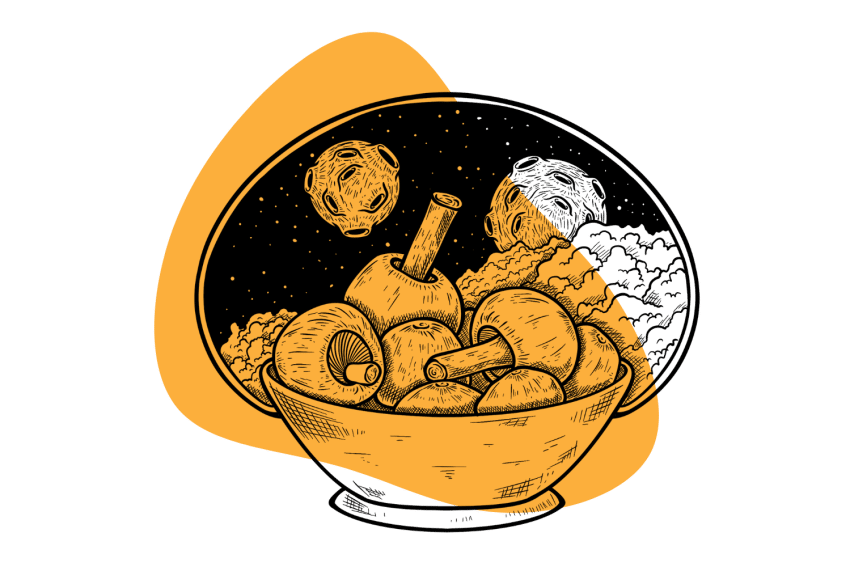
The ketogenic diet has been growing in popularity for a while — especially if you consider its predecessor, Atkins.
Ketosis (the metabolic state a keto diet seeks to invoke) is an evolutionary adaptation to help us subsist on fat cells during food shortages.
Today, we use ketosis as a way to lose weight, support metabolic conditions like diabetes, and boost energy levels (at least, in theory). While research is inconclusive on specifics, it’s not non-existent, and anecdotal reports swear by the potential of the keto diet.
Where do mushrooms fit into all of this? And, for that matter, are psychedelic mushrooms allowed on a keto diet?
Let’s break it all down.
Can You Eat Mushrooms On a Keto Diet?
On their own, mushrooms are not keto-friendly — but when mixed with other foods high in fats, they’re perfectly acceptable on a ketogenic diet.
Mushrooms are an excellent addition to a ketogenic diet because:
- They’re low in carbs
- They’re high in fiber which can be difficult to find on a keto diet
- Gourmet options offer tremendous variety and potential for benefits
- Mushrooms are an excellent vector for consuming fats from other sources
Mushrooms are a great food to include in a ketogenic diet — but only when mixed with other foods high in fat. Mushrooms don’t contain a lot of carbohydrates, but they also don’t offer much fats or proteins either.
A key element of the ketogenic diet is the ratio of carbohydrates to fats and protein. Opinions on the ideal ratios differ, but in general keto meals should contain roughly 70–75% fats, 5–10% carbs, and 20–25% protein.
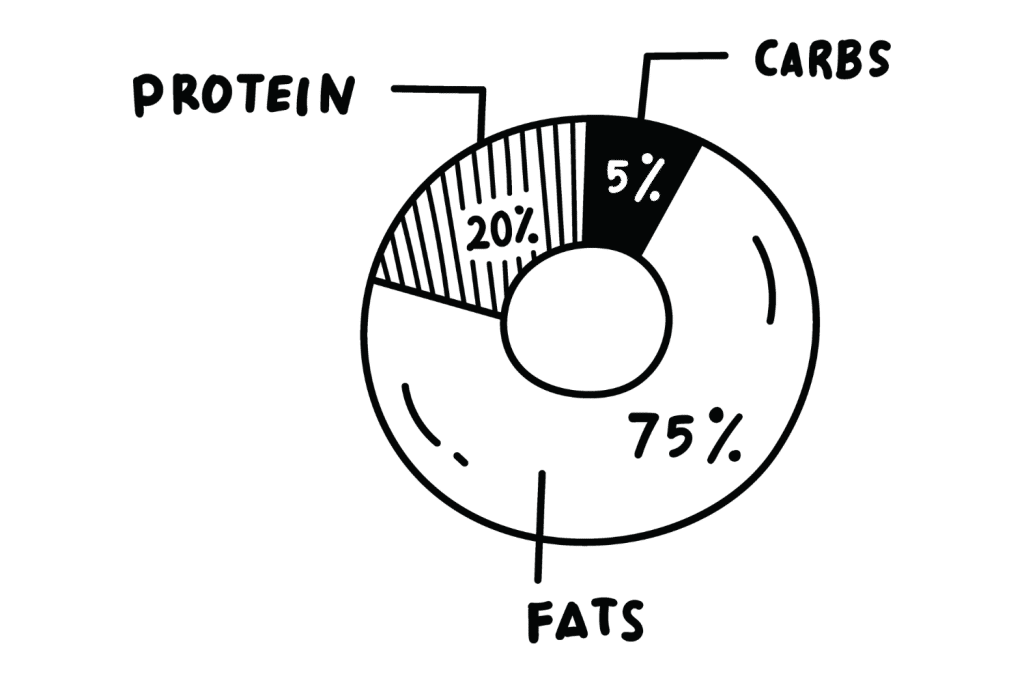
Proteins must be limited on this diet, too, because the body can convert them into carbohydrates in times of need.
Mushrooms are better served as a vector for delivering other fats, like vegetable oils, butter, or animal fats. They have a tendency of soaking up the fats and juices of any dish they’re included in. This makes them an excellent addition to fat-heavy keto dishes.
Gourmet mushrooms like the above often have a meaty texture, and some (like lion’s mane) even resemble seafood.
Macro Breakdown of Common Gourmet Mushrooms (Per 100 Grams of Raw Mushrooms)
| Species | Carbohydrates | Fats | Proteins |
| White Button Mushrooms | 3.3 g | 0.3 g | 3.1 g |
| Portobello Mushrooms | 3.9 g | 0.4 g | 2.1 g |
| Lion’s Mane Mushrooms | 7 g | 0.2 g | 2 g |
| Oyster Mushrooms | 6.1 g | 0.4 g | 3.3 g |
| Shiitake Mushrooms | 6.8 g | 0.5 g | 2.2 g |
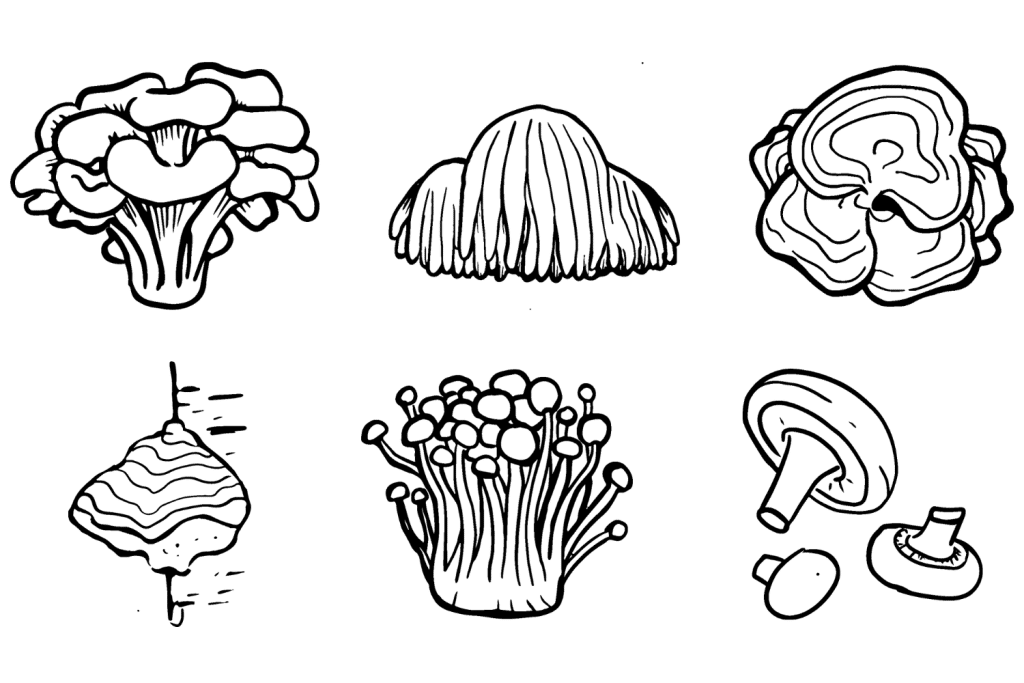
Are Psychedelic Mushrooms Keto?
Technically speaking, psychedelic mushrooms don’t are keto-friendly because they, like all other mushrooms, are low in carbs. However, several anecdotal claims state that a keto diet potentiates the effects of psychedelics which may be cause for alarm. This means you might experience a stronger psychedelic profile than expected while on the ketogenic diet.
Others claim the opposite — saying their keto diet blunts the effects of psychedelics.
Ultimately, this all relates to something we already know — your metabolism affects the strength of psychedelics. This is especially true for magic mushrooms, which have to pass through your liver and undergo partial metabolism to convert psilocybin to its active metabolite, psilocin.
While we can’t definitively understand how the effects of magic mushrooms could change through ketosis, we know ketones regulate certain g-coupled protein receptors [1]. These crucial components of our physiological makeup are the mechanisms by which dopamine, serotonin, and various other neurotransmitters operate.
Because of this, they are also crucial locations of action for psychedelics which closely resemble serotonin.
We also know ketosis can increase the permeability of our crucial blood-brain barrier responsible for accepting (or declining) chemicals like psilocin [2]. This might result in a higher efficacy for psychedelics while a person is in ketosis.
These facts don’t mean you can’t take magic mushrooms while on a ketogenic diet, but you should exercise caution when doing so. Start with far less than you normally would and gradually work your way up through several sessions to understand how your new diet might interact with the psychedelic effect.

Keto-Friendly Magic Mushroom Edibles
Making edibles out of your magic mushrooms can help mask the taste and measure out your dosage for multiple uses. Before you’re ready to create your culinary confection, you should first grind your mushrooms into a powder.
This will make them easier to work with and blend with other ingredients.
While you could technically throw your magic mushrooms on top of a delicious, cooked steak and be done, it’s probably better to keep your meal a bit lighter if you’re “planning to travel.”
Here are a couple of great recipe ideas if you’re in the mood for a refreshing snack to not “embark on your trip with an empty tank”:
1. Psychedelic Peanut-Butter & Cacao Smoothie
Place the following in a blender or food processor and blend until smooth:
- 1 cup of coconut milk
- 1 tablespoon of coconut oil
- ½ of an avocado
- 1 teaspoon of cinnamon
- (optional) sweetener of choice to taste
After, you can add in your desired dose of powdered mushrooms and lightly blend it a bit further.
Note: Don’t add the mushrooms in before blending the rest, as the blades on the blender can heat with increased use and degrade psilocybin.
2. Magic Mushroom Bone Broth/Chicken Stock
Bone broth is a nutritious addition to any keto diet and can give you some nutrition before you embark on a psychedelic trip.
While it’s a bit more intensive to create, it’s easy to whip up a large batch of bone broth and store it to add your psychedelic mushrooms whenever you’re ready for the trip.
To make bone broth:
- Add whatever bones you’d like along with your preferred chopped vegetables to a pressure cooker, slow cooker, or Dutch oven — garlic, onion, celery, and carrots are common
- Fill ⅔ of the way with water and add a squeeze of lemon and some bay leaves to the pot along with some salt
- Cook in a pressure cooker under medium-to-high pressure for 90 minutes, or a Dutch oven/slow cooker for 6–10 hours
- Strain, jar, and cool the liquid from the bones, vegetables, and meat scraps
After you’ve let it sufficiently cool, you can add in your mushroom powder, stir or shake the jar, and you’ll be ready to go! Some enjoy drinking the broth when it’s warm, which is fine; just make sure it’s not too hot before you add your mushies in.
3. Magic Mushroom Truffles (The Chocolate Kind)
Bringing a new meaning to psychedelic truffles, these keto-friendly bonbons will be a delicious gateway into the psychedelic world.
The best way to prepare this is on a stovetop (this recipe makes 12, so dose accordingly):
- In a small pot, heat 1 ½ tablespoons of butter, 6 tablespoons of heavy cream, and 2 tablespoons of your preferred sweetener over medium heat
- While that’s warming, place ½ cup sugar-free chocolate chips in a glass, heat-resistant bowl
- When small bubbles form at the side of the pot and the cream begins to let off steam, stir the pot before removing it from the heat and pouring it over your chocolate chips
- Let it sit for five minutes, then add 1 teaspoon of brandy (optional) and 1/8th teaspoon of vanilla extract, and your preferred amount of powdered mushroom material.
- Stir fully and let it cool before placing it in the refrigerator to cool overnight.
- The following day, take a melon baller to scoop the cooled chocolate from the bowl and form your truffles (if it’s too hard, you may heat it gently first but be careful not to get it too hot.
- (Optional) Supercharge your truffles by rolling them in crushed nuts, seeds, coconut shavings, or dried fruit to add to the delicious flavor
What Is A Keto Diet?
If you’re familiar with the Atkins diet of yesteryear, then you already have some understanding of a ketogenic diet. The point is to reduce your intake of carbohydrates, putting your body into a fasted state where it burns fats instead of carbohydrates (“ketosis”). You can achieve this by swapping carbohydrates for fats in your diet.
Essentially, you deprive yourself of the easy fuel of carbohydrates to force your body to start utilizing fat as an energy source. After doing so, you maintain a high-fat diet to keep your energy levels up.
The requirements can feel weird to some, given our decades of media assault on fat and cholesterol.
Dietary studies are difficult because each metabolism and digestive system can operate differently, and most catch-all diets aren’t useful for each individual. Research has yet to prove (or disprove) the benefits of a keto diet, but it’s definitely surpassed the realm of pseudo-science at this point — more on this later.
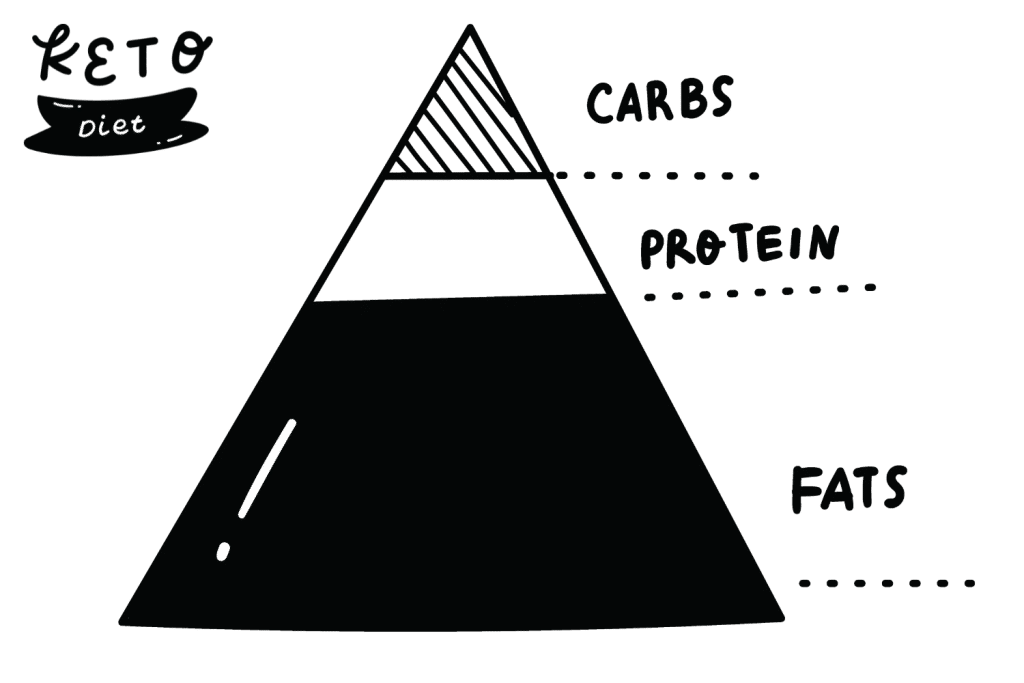
Is Keto Supported By Research?
While inconclusive, here’s a breakdown of some of the research out there today for the keto diet:
| Year | Participants | Results |
| 2018 | 38 participants with Parkinson’s disease split between a keto and a low-fat diet | Both groups improved greatly, but the keto group had an advantage in “non-motor symptom” (mental health/memory, behavioral troubles, etc.) improvement [3]. |
| 2019 | 29 healthy military personnel on a ketogenic diet for 12 weeks | “Remarkable weight loss and improvements in body composition” and no lowering of performance [4]. |
| 2019 | 55 individuals with epileptic seizures | 60% of participants had seizures lower by at least half, 76% reported an improvement in their severity, and 87% reported an improvement in quality of life [5]. |
| 2019 | 35 obese adults over 12 weeks | Significant weight loss as early as 1 week onward, lower levels of insulin and other metrics [6]. |
| 2019 | Review of current evidence | Reviews evidence for and suggests keto diets could have neuro-protective benefits and potentially assist in preventing Parkinson’s and Alzheimer’s [7]. |
| 2020 | Review of current evidence | Calls for “high-quality clinical trials” but also states that it doesn’t seem as though “a well-formulated” keto diet is harmful and can be more beneficial for obesity and/or diabetes [8]. |
| 2022 | Review of current evidence/proposal for the future | Suggests keto could “dispose of up to two-thirds of the lipids entering the liver” and, as such, would be very helpful for treating non-alcoholic fatty liver disease (NAFLD) [9]. |
References
- Kimura, I., Inoue, D., Maeda, T., Hara, T., Ichimura, A., Miyauchi, S., Kobayashi, M., Hirasawa, A., & Tsujimoto, G. (2011). Short-chain fatty acids and ketones directly regulate the sympathetic nervous system via G protein-coupled receptor 41 (GPR41). Proceedings of the National Academy of Sciences, 108(19), 8030–8035. https://doi.org/10.1073/pnas.1016088108
- Hasselbalch, S. G., Knudsen, G. M., Jakobsen, J., Hageman, L. P., Holm, S., & Paulson, O. B. (1995). Blood-brain barrier permeability of glucose and ketone bodies during short-term starvation in humans. American Journal of Physiology-Endocrinology and Metabolism, 268(6), E1161–E1166. https://doi.org/10.1152/ajpendo.1995.268.6.E1161
- Phillips, M. C. L., Murtagh, D. K. J., Gilbertson, L. J., Asztely, F. J. S., & Lynch, C. D. P. (2018). Low‐fat versus ketogenic diet in Parkinson’s disease: A pilot randomized controlled trial. Movement Disorders, 33(8), 1306–1314. https://doi.org/10.1002/mds.27390
- LaFountain, R. A., Miller, V. J., Barnhart, E. C., Hyde, P. N., Crabtree, C. D., McSwiney, F. T., Beeler, M. K., Buga, A., Sapper, T. N., Short, J. A., Bowling, M. L., Kraemer, W. J., Simonetti, O. P., Maresh, C. M., & Volek, J. S. (2019). Extended Ketogenic Diet and Physical Training Intervention in Military Personnel. Military Medicine, 184(9–10), e538–e547. https://doi.org/10.1093/milmed/usz046
- Roehl, K., Falco-Walter, J., Ouyang, B., & Balabanov, A. (2019). Modified ketogenic diets in adults with refractory epilepsy: Efficacious improvements in seizure frequency, seizure severity, and quality of life. Epilepsy & Behavior: E&B, 93, 113–118. https://doi.org/10.1016/j.yebeh.2018.12.010
- Mohorko, N., Černelič-Bizjak, M., Poklar-Vatovec, T., Grom, G., Kenig, S., Petelin, A., & Jenko-Pražnikar, Z. (2019). Weight loss, improved physical performance, cognitive function, eating behavior, and metabolic profile in a 12-week ketogenic diet in obese adults. Nutrition Research (New York, N.Y.), 62, 64–77. https://doi.org/10.1016/j.nutres.2018.11.007
- Włodarek, D. (2019). Role of Ketogenic Diets in Neurodegenerative Diseases (Alzheimer’s Disease and Parkinson’s Disease). Nutrients, 11(1), 169. https://doi.org/10.3390/nu11010169
- Ludwig, D. S. (2020). The Ketogenic Diet: Evidence for Optimism but High-Quality Research Needed. The Journal of Nutrition, 150(6), 1354–1359. https://doi.org/10.1093/jn/nxz308
- Mooli, R. G. R., & Ramakrishnan, S. K. (2022). Emerging Role of Hepatic Ketogenesis in Fatty Liver Disease. Frontiers in Physiology, 13, 946474. https://doi.org/10.3389/fphys.2022.946474



